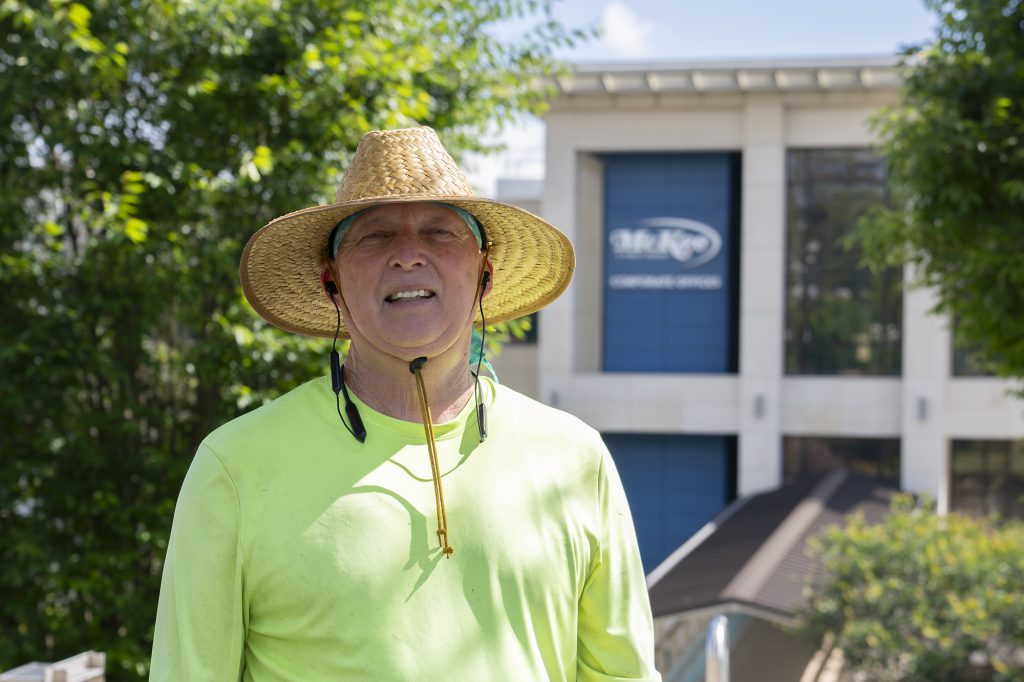McKee Foods, the iconic family-owned bakery known for its Little Debbie brand, is committed to enhancing its landscaping with native plants. The task was driven by a commitment to employee wellbeing, cost effective maintenance, and sustainability. McKee’s integration of native plants into their landscaping has not only resulted in improvements in beautification, but also in efficiency and maintenance across their headquarters in Collegedale, Tennessee. Since embracing the integration of native plants, especially ornamental grasses, the company has minimized water usage, and curated a scenic atmosphere for employees and visitors.

McKee Foods’ Natural Evolution
Headquartered in Collegedale, Tennessee, McKee Foods creates premium baked goods, like iconic Little Debbies, which have been a fixture in homes for generations. Founded by O.D. and Ruth McKee in 1934, and now operated by their grandchildren, the company deeply values environmental stewardship, and sustainability carries into the company grounds and landscaping.
Co-Founder Ruth McKee is regarded as the catalyst for the company’s transition into landscaping. The popularity of snack cakes drove a need for more manufacturing space, so the company headquarters grew under younger generations of the McKee family, including more property and manufacturing facilities. The transformation of the facility grounds into beautiful landscapes was inspired by Ruth McKee, the matriarch of the family, who deeply loved nature and gardening.

In 1980, Steve Owens was hired by O.D. McKee to oversee landscape management and transform the sparsely landscaped campus to a beautiful environment for all to enjoy. Owens started small- beginning with the spaces that employees and residents in the Collegedale community saw during their commutes. Gradually, Owens’s landscaping efforts expanded to include additional sites, such as the Ooltewah Plant and Apison Plant. With Ruth in mind, today Owens cultivates the landscape of McKee’s corporate campus.
Sustaining Beauty: The Lasting Impact of Native Plants
While Owens originally did not set out to plant native, he gravitated toward species that he “grew up with-” species that feel familiar. Prior to integrating native plants, McKee Foods faced obstacles with high maintenance landscaping, heavily water dependent plants, and an ever-changing climate accompanied by longer dry spells. With the assistance of partners at Ooltewah Nursery, Owens learned through trial and error which plants thrive in the landscape, and which do not. Over time, they realized that native plants provide a solution with longevity, beauty, and a reduction in upkeep.
Under Owens’s skillful direction, McKee Foods has expanded its green areas in the last eight years as parking lots have been added and manufacturing facilities have grown. Thriving native plants such as coneflowers, Black-eyed Susans, and three varieties of switchgrass have added color and texture to the facilities with minimal maintenance. These plants are already adapted to the local climate, requiring less water and withstanding occasionally harsh conditions such as drought.
In addition to improving resources, the beautification efforts improve the daily lives of employees by cultivating thoughtfully-designed spaces for work. The intentional selection of native plants across its corporate landscape reflects the McKee family’s roots in Collegedale, as well as their deep values of community and environmental stewardship.





